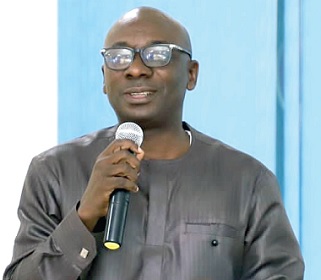
Stakeholders call for policy on night driving to prevent accidents
A multi-stakeholder team on road safety has advocated the development of a policy on night driving to help reduce accidents in the country.
The team, put together by the National Road Safety Authority (NRSA), conducted investigations into road crashes between 2010 and 2022 and came to the conclusion that a policy on night driving should focus more on long-distance drivers to ensure they do not drive sleepy.
It was also established that the absence of safety policies, including speed management, had led to some of the accidents.
The team further recommended that transport unions should properly be regulated to ensure that members complied with safety standards.
The team comprised a civil engineer, transport planners, a mechanical engineer, a research scientist, a lawyer, a medical doctor, a law enforcer and an organisational development and business management expert.
The Head of Regulations, Inspection and Compliance (RIC) at the NRSA, Kwame Kodua Atuahene, told the Daily Graphic that while police investigations focused on prosecutorial sanctions, the investigation conducted by the team of experts was to help correct systemic lapses to improve safety on the roads.
The study
The team looked at public interest road crashes, defined as any crash that leads to five or more deaths, and also went behind the scenes to witness what actually caused the crashes, aside from the immediate causes.
It also established a trend analysis of the accidents between 2010 and 2022 to understand the common denominator in road crashes.
It noted that unregulated industry and the lack of safety policies to guide commercial transport operators were part of the remote causes of accidents.
The investigations also revealed that the lack of a safety regime on pre-departure checks, rest plan, rest rooms and rest stops were among the underlying causes of road crashes.
They centred on 19 notable road crashes, including the one which occurred at Dawa in 2010, claiming 20 lives, the Kintampo Waterfall accident in 2016 in which 63 people died, the Kintampo-Amoma Nkwanta accident that killed 60 people in 2019, as well as the Damooase accident in which 34 people perished in 2020.
Others were the Buipe accident that claimed 18 lives in 2021, the Abofour crash in which 20 people died and the Asuboi and the Asem Asa accidents that claimed 11 and 14 lives, respectively, this year.
Direct causes of the accidents were fatigue driving, sleeping behind the wheel, speeding, wrongful overtaking and overloading.
Causes
Some of the indirect causes of the accidents were inadequate road signs, poor visibility due to overgrown vegetation at sharp curves, disabled trucks on the shoulders of roads, as well as unsafe road environment.
Other causes were the absence of emergency exit doors, lack of seat belts and improper conversion and modification of goods vehicles to passenger-carrying vehicles.
Also, 42 per cent of the crashes occurred on the N10 Highway from Kumasi to Burkina Faso; 26 per cent on the N6, which spans Nsawam, Nkawkaw and Ejisu to Kumasi; 21 per cent on the Takoradi-Accra section of the N1, and 11 per cent on the Tema-Aflao section of the N1.
The N1 begins at the border with Cote d’Ivoire at Elubo and runs through Sekondi-Takoradi, Cape Coast, Winneba, Accra and Tema to the border with Togo at Aflao.
